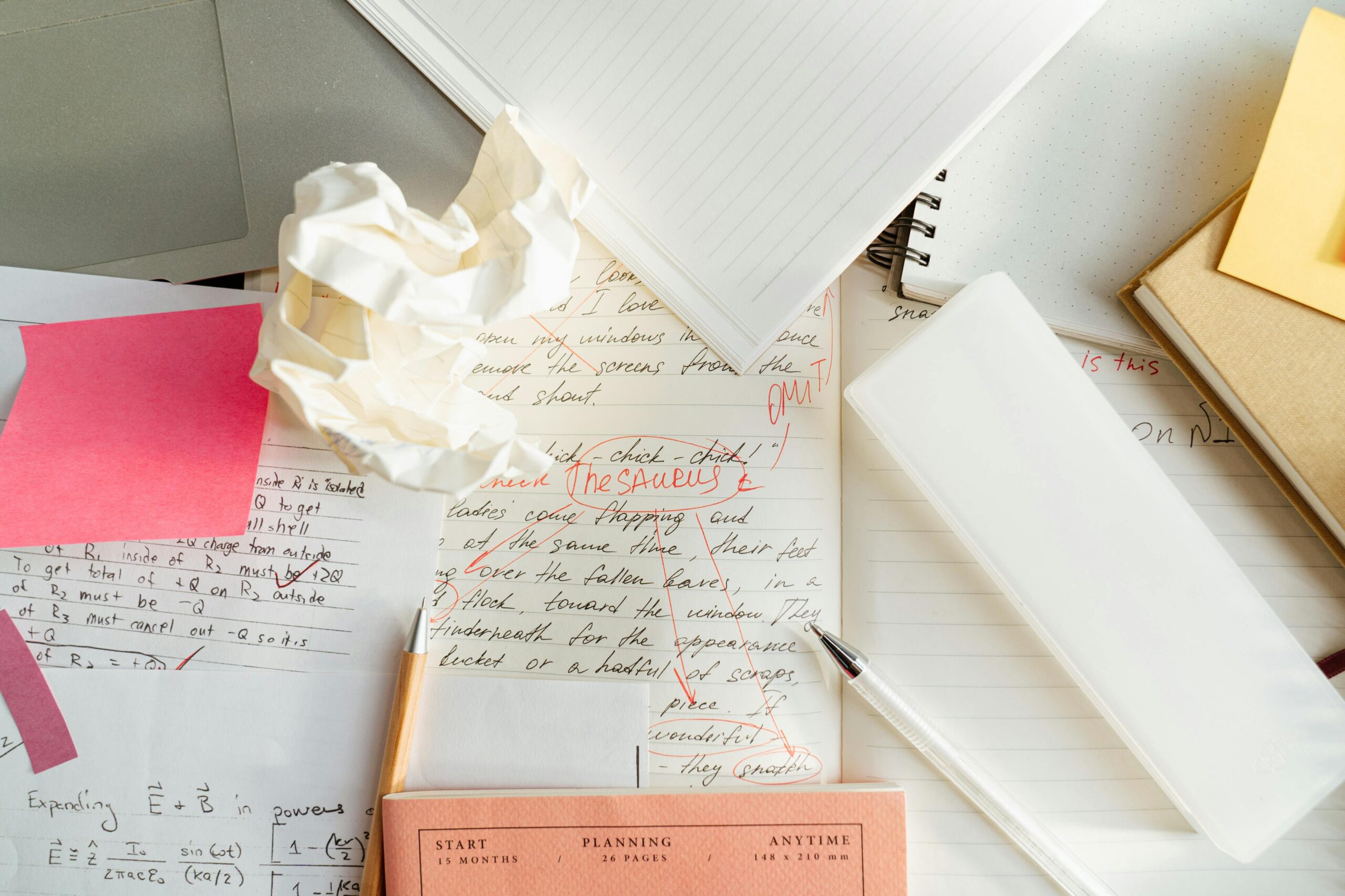Decluttering your mind and your home might seem like two separate tasks, but they are deeply connected. A cluttered home can lead to a cluttered mind, and a chaotic mind can make it difficult to maintain a tidy living space. The good news is, by decluttering both at the same time, you can create a calm and organized environment that promotes peace and focus. In this article, we’ll explore simple steps to help you declutter both your mind and your home.
Table of Contents
Toggle1. Start with Small, Manageable Tasks
It can be a little much when attempting to declutter everything all at once. The key to success is to start small and focus on one thing at a time. Whether you’re decluttering your home or mind, breaking down big tasks into smaller steps will help you feel more in control.
Tips for Small, Manageable Tasks
- Pick one area: Begin by focusing on one room or one part of your home.
- Set a time limit: Dedicate 20-30 minutes each day to decluttering, both physically and mentally.
- Use a checklist: Make a list of tasks to complete, both for organizing your home and calming your mind.
Why Start Small?
- Reduces overwhelm: Starting with one task at a time makes the process feel less daunting.
- Builds momentum: Completing small tasks will give you a sense of accomplishment and keep you motivated.
2. Clear Physical Clutter to Calm Your Mind
A cluttered home can create mental stress and anxiety. By clearing physical clutter, you create a cleaner, calmer environment, which can help ease mental clutter as well. Start by organizing the areas that cause you the most stress.
Areas to Focus on
- Kitchen counters: Clear off any unused appliances or dishes.
- Living room: Pick up items left on tables, couches, and the floor.
- Bedroom: Tidy up clothes, books, and other personal items.
How Clearing Clutter Helps Your Mind
- Promotes relaxation: A clean, organized space allows you to relax without the distraction of mess.
- Improves focus: When your space is tidy, it’s easier to concentrate on tasks and clear your mind.
3. Practice Mindfulness and Breathe
Sometimes, the best way to declutter your mind is to simply pause and breathe. Mindfulness techniques help you become aware of your thoughts and let go of unnecessary stress.
Simple Mindfulness Techniques
- Having a deep breath: Breathe in really slowly and deeply for some time and rest your brain.
- Meditate: each day for roughly 5-10 minutes focusing on one’s breathing or through a guided meditation.
- Mindful walking: Go for a walk and focus on your surroundings, breathing, and thoughts.
Why Mindfulness Matters
- Calms your mind: Mindfulness helps reduce anxiety and clear mental clutter.
- Increases awareness: It allows you to observe your thoughts and stop negative patterns.
4. Declutter Your Digital Life
In today’s world, our digital lives can also contribute to mental clutter. Too many emails, files, or notifications can create stress. Decluttering your digital space is an important part of decluttering your mind and your home.
Digital Decluttering Tips
- Unsubscribe from unnecessary emails: Clear out your inbox by unsubscribing from newsletters or promotional emails.
- Organize your files: Sort documents into folders, delete anything you don’t need, and back up important files.
- Limit screen time: Set boundaries for how much time you spend on social media or watching TV to reduce mental overload.
Why Digital Decluttering Helps
- Reduces distractions: A clean digital space helps you stay focused and organized.
- Improves mental clarity: You’ll feel less stressed and more in control when your digital life is organized.
5. Create Daily Routines to Maintain Order
Once you’ve cleared the physical and mental clutter, maintaining this new sense of order is essential. Daily routines can help you keep both your home and mind organized, preventing clutter from building up again.
Tips for Maintaining Order
- Make your bed every morning: Starting your day with a small act of tidying sets a positive tone for the rest of the day.
- Clean up after yourself: Try to put things away immediately instead of letting them pile up.
- Set aside time for mental decluttering: Take a few minutes each day to practice mindfulness or write down your thoughts in a journal.
Why Daily Routines Matter
- Consistency: Small daily actions prevent clutter from accumulating.
- Mental clarity: Keeping your environment and mind organized helps you feel more focused and relaxed.
6. Let Go of Perfectionism
One of the biggest hurdles to decluttering both your home and mind is the desire for perfection. It’s important to remember that decluttering is a process, not a one-time event. Don’t beat yourself up; things don’t have to be perfect straight away.
How to Let Go of Perfectionism
- Set realistic expectations: Understand that decluttering takes time and that some mess will always exist.
- Celebrate progress: Acknowledge your efforts and the improvements you’ve made, even if they’re small.
- Practice self-compassion: Be kind to yourself when you experience setbacks or feel overwhelmed.
Why Letting Go Helps
- Reduces stress: Trying to make everything perfect creates unnecessary pressure.
- Fosters progress: Focusing on improvement rather than perfection allows you to move forward.
Final Thoughts
Decluttering your home and your mind simultaneously can create a sense of balance and calm. By starting small, clearing physical clutter, practicing mindfulness, and creating routines, you can reduce both mental and physical clutter in your life. Remember: perfection isn’t the goal but progress. By taking consistent steps each day, you can enjoy a more peaceful, organized life—both at home and in your mind. Start today, and you’ll be amazed at how good it feels to let go of the clutter!

